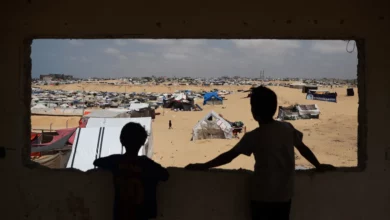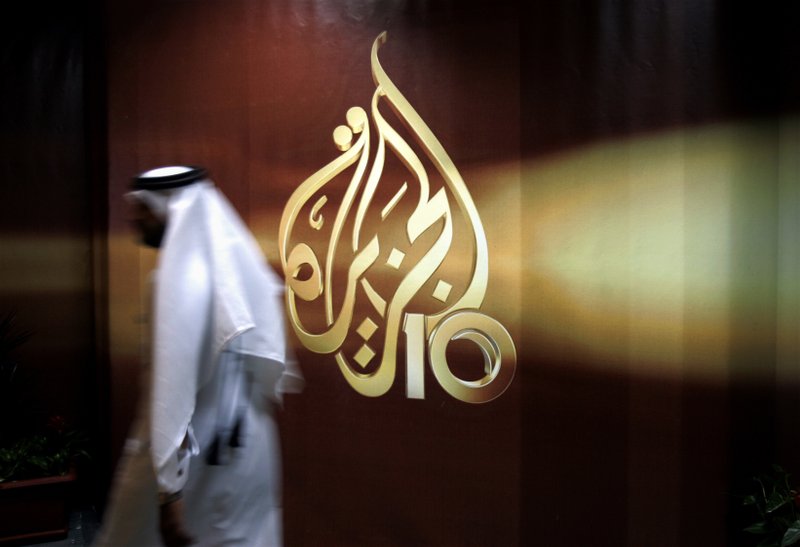Egypt's political state of flux, especially at the ministerial level, will adversely affect efforts to establish a viable foreign policy with the newly formed nation of South Sudan.
The new country, born after a referendum saw a 98% majority opt to secede from the government in Khartoum, came into existence on 9 January. Egypt and other neighboring countries had arbitrated the negotiations between the northern and southern regions after a bloody decades-long civil war that has resulted in two million deaths. The war only ended with the signing of a peace agreement in 2005 that included an option for a referendum on the south's secession.
Though Egypt took all measures to maintain the unity of Sudan, it was the second nation after the government of Khartoum to recognize South Sudan. Egypt has always considered events in Sudan as central to its national interests, mainly because of the shared ownership of the Nile and the subsequent water-rights issues that have been the source of much antagonism amongst the basin countries.
Despite the quick recognition, Political Science professor at the American University in Cairo Walid Kazziha does not predict a proactive approach toward South Sudan from Cairo in the near future, since Egypt is still getting its own internal affairs in order.
“It didn’t turn out to be as easy as expected. To get out of this and establish a viable foreign policy will require a solid internal front, which at the moment is haphazard,” he explained.
This disorder was apparent in Egypt's most recent cabinet reshuffle, in which more than half of the portfolios changed in an attempt to placate continued protests in the country. Furthermore, the reshuffle itself did not prove radical enough to quell the protests.
Despite the changes of the moment, Egypt does have a history of diplomatic relations with the southern region of Sudan. In the 1970s, then-President Anwar Al-Sadat set aside specific academic scholarships for residents of southern Sudan. And after Sudan's civil war peace agreement, Egypt entertained the possibility of secession and began to introduce projects in the south. Schools have been built, a branch of Alexandria University operates there and Egypt provides electricity to five towns in the south.
Egypt's total investment in development of the south has totaled LE1 billion, according to Sudan expert at Al-Ahram Center for Political and Strategic Studies Hani Raslan, but that is nowhere near enough for a burgeoning state with serious infrastructure problems and tribal violence.
“South Sudan will encourage and foster relations with countries that will offer the greatest assistance,” he said. “For example, the US has pledged US$2 billion in assistance, which makes Egypt’s contribution paltry in comparison.”
There are also concerns about the establishment of ties between Israel and South Sudan. The new state’s vice president, Riek Machar, said recently in New York that his country will have relations with Israel, like many other Arab and Muslim countries.
The secession of the south on religious lines helps to legitimize Israel’s self-justification as a Jewish state and fits the country's preference for a Middle East comprised of states formed upon religious lines, according to Kazziha.
Raslan contended that Israel has offered military assistance to southern Sudan for decades, as well as intelligence assistance to the extent that Israeli officers were present in the territory at one point. Israel's interests in the new state also contradict with Egypt's, concerning access to water from the Nile.
The Nile water-rights issue is a vital one for Egypt, which along with all of Sudan holds the lion’s share of water rights, according to a colonial-era treaty that granted the two countries more than 80% of the river's water. This has caused friction with other Nile basin countries that have been seeking a more equitable division of the water and have signed an agreement indicating as much to the chagrin of Cairo and Khartoum.
So while Egypt currently sorts out its own affairs, it needs to increase its assistance to South Sudan, especially in areas of technical development, in which Egypt can offer much-needed expertise to the new country.
“Egypt’s economy does not allow it to offer major financial assistance to South Sudan, but it can do much in the way of offering technical assistance and it can also play a vital role by encouraging Arab countries to pledge financial assistance. It must find a place amongst the competition,” Raslan said.
The final pressing issue is Egypt's relationship with the government in Khartoum, and more specifically President Omar al-Bashir, who is wanted by the International Criminal Court for his alleged complicity in the genocide in Darfur. In addition, Darfur continues to experience turbulence, which some believe could lead to a further cleavage of Sudan.
Kazziha believes that Egypt must look to building an alliance with a more popular government in North Sudan. “We also need to be aggressive towards Khartoum, because it is a criminal regime that has precipitated the division of a failed society into two failed states.”
“Egypt in principle will have to contribute to a political arrangement in Sudan that will bring in a more viable government in Khartoum, which will reflect the will of its people,” he went on. “That will only be in Egypt’s interests in the long run.”




